The complicated history of ‘go back to Africa’
From The Washington Post:
“The pejorative phrase “Go back to Africa” made news last month when hurled at protesters at Donald Trump rallies. At the canceled rally on the campus of the University of Illinois–Chicago on March 11, protestor Jedidiah Brown was irate after he was allegedly told to “go back to Africa” by a Trump supporter. A natural-born American citizen, Brown said he had never been to Africa and therefore no one had the right to tell him to go back to a place he is not from.
“The phrase “Go back to Africa” seems like nothing but an insult. It doesn’t have to be that way, as demonstrated by the historical links between black Americans and the African continent.
“Many Americans have been denied a meaningful appreciation of the geographic, economic, and sociopolitical complications in African countries. Few understand the complex history of slavery that forever intertwined the divergent fortunes of Africa and America.”
Read here the remainder of the piece by Fodei Batty, an assistant professor of political science at Quinnipiac University in Hamden, Conn.
Settlements: Remembering A Forgotten Black History In San Antonio
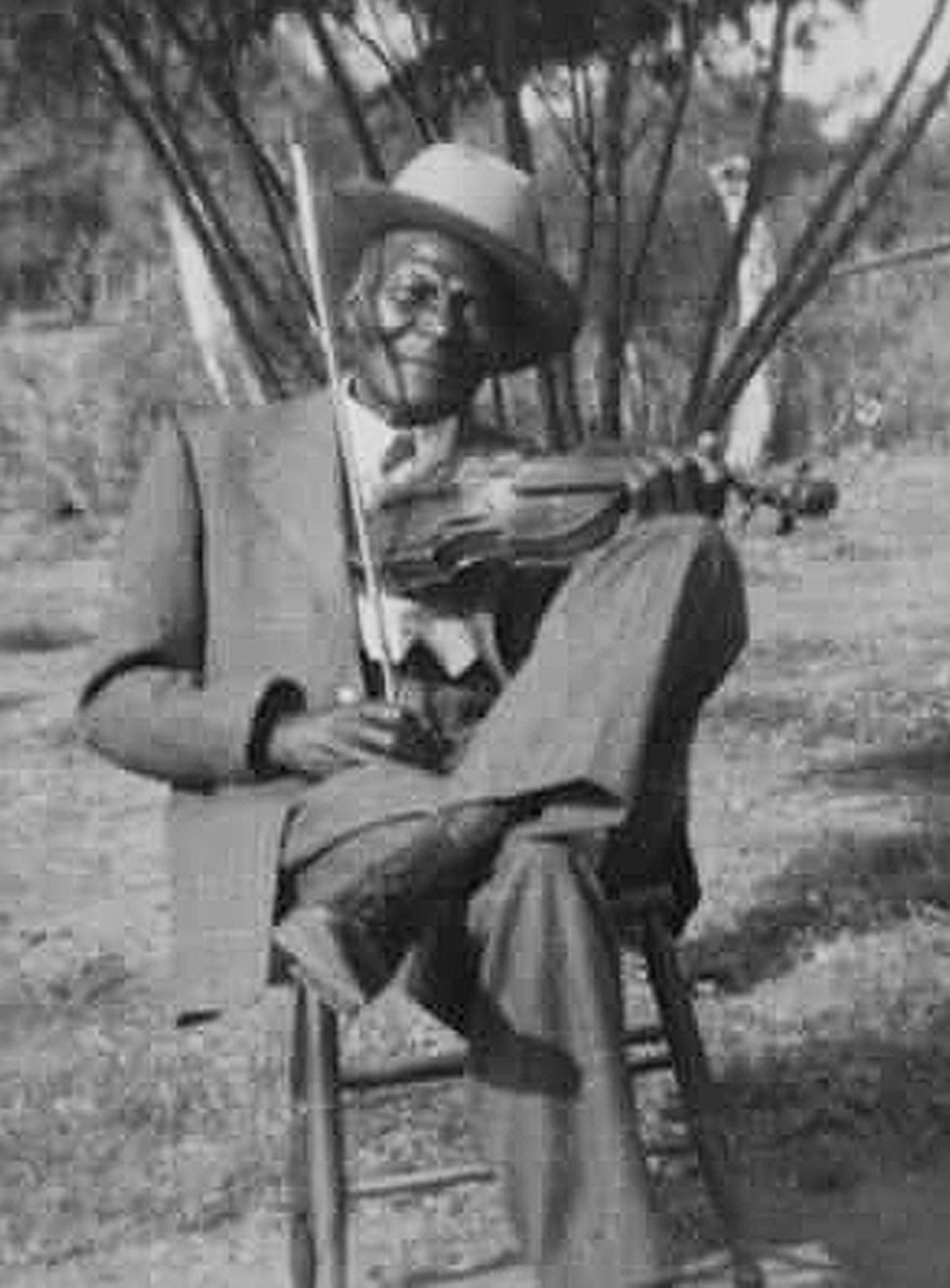 When we think about the history of African Americans in San Antonio, we are often too quick to relegate it to the city’s east side. But – as Everett Fly has discovered – that is far too narrow a view for a city with roots going back 300 plus years.
When we think about the history of African Americans in San Antonio, we are often too quick to relegate it to the city’s east side. But – as Everett Fly has discovered – that is far too narrow a view for a city with roots going back 300 plus years.
“We have settlements in every quadrant of the city,” says Fly, who is a national expert on historic black settlements. Fly can point to three just north of San Antonio’s Airport off the top of his head.
These settlements were usually composed of homes, a school and a church. Today the only thing remaining are the cemeteries. These black cemeteries tell an interesting story of who these people were and often times who they once belonged to. It shows how interweaved the African American experience has been with the entire city.
These black cemeteries also tell another story. In their anonymity – many not protected or on any historic registry – tell the story that whether intentional or not, San Antonio has forgotten this chapter and taken few steps to preserve it.
Fly now works to preserve these former settlements and says San Antonio, a city with preservation in its blood, has all the tools it needs right now to ensure this history is remembered.
He talks about black history in San Antonio in this Texas Public Radio interview.
Willy T. Ribbs: Reflections from first black driver in Indy 500
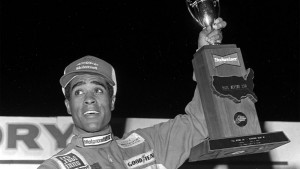 This weekend will mark the 100th running of the Indianapolis 500, the most prestigious auto racing event in the U.S. However, it has only been 25 years since the race included its first African American driver, Willy T. Ribbs. A native of San Jose, Ca., Ribbs finished 32nd in the 1991 event. He recently looked back on his role in history in an interview with Indianapolis station WISH-TV. See the interview here.
This weekend will mark the 100th running of the Indianapolis 500, the most prestigious auto racing event in the U.S. However, it has only been 25 years since the race included its first African American driver, Willy T. Ribbs. A native of San Jose, Ca., Ribbs finished 32nd in the 1991 event. He recently looked back on his role in history in an interview with Indianapolis station WISH-TV. See the interview here.
Said Ribbs: “A few people in life have the opportunity to be a history maker. Jackie Robinson was one and there have been many others,
Ribbs currently resides in Austin.
Down That Road: Dr. Flossie M. Byrd
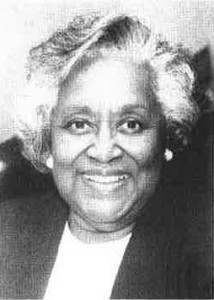 Flossie M. Byrd served as the first Provost and Vice President for Academic Affairs at Prairie View A&M University. Dr. Byrd earned the Bachelor of Science degree in Home Economics at Florida A&M University (FAMU); the Master of Education degree in Home Economics Education at Pennsylvania State University and the Doctor of Philosophy degree in Home Economics Education with minors in Child Development and Educational Psychology and Measurement at Cornell University.
Flossie M. Byrd served as the first Provost and Vice President for Academic Affairs at Prairie View A&M University. Dr. Byrd earned the Bachelor of Science degree in Home Economics at Florida A&M University (FAMU); the Master of Education degree in Home Economics Education at Pennsylvania State University and the Doctor of Philosophy degree in Home Economics Education with minors in Child Development and Educational Psychology and Measurement at Cornell University.
Born in Sarasota, Florida to John and Elizabeth Smith Byrd, Dr. Byrd was the oldest of 17 children. She enrolled in FAMU intending to be an English major because she wanted to eventually become a teacher. When one of her professors told her that agriculture teachers made more money than English teachers, Dr. Byrd changed her major to home economics.
Dr. Byrd began her professional career as a high school home economics teacher in the Florida public schools. She taught at FAMU before coming to Prairie View A&M University, where she served as the Dean of the College of Home Economics for 23 years. She was appointed Vice President for Academic Affairs in 1991. A title change led to Dr. Byrd’s official appointment as Provost and Vice President for Academic Affairs in 1993 by then President, Lt. Gen (Ret) Julius Wesley Becton, Jr.
She was a well – known leader in the national land grant community. Additionally, Dr. Byrd held leadership positions in Delta Sigma Theta Sorority, Incorporated as well as in the Church of Christ. When Prairie View A&M University was featured on the Today show in 1993, Dr. Byrd was interviewed by noted television anchor, Katie Couric, who asked her about the value of historically black colleges and universities. She enumerated several success stories of Prairie View A&M University and ended with the statement, “Prairie View A&M University has made its mark.”
Upon her retirement in 1994, Dr. Byrd returned to her hometown of Monticello, Florida where she still spends time with her close family and friends.
TIPHC Bookshelf
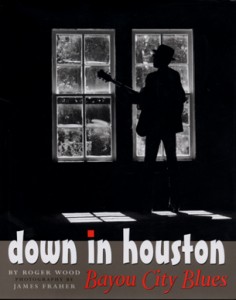 Published scholarship on black history in Texas is growing and we’d like to share with you some suggested readings, both current and past, from some of the preeminent history scholars in Texas and beyond. We invite you to take a look at our bookshelf page — including a featured selection — and check back as the list grows. A different selection will be featured each week. We welcome suggestions and reviews. This week, we offer, “Down In Houston, Bayou City Blues,” by Roger Wood.
Published scholarship on black history in Texas is growing and we’d like to share with you some suggested readings, both current and past, from some of the preeminent history scholars in Texas and beyond. We invite you to take a look at our bookshelf page — including a featured selection — and check back as the list grows. A different selection will be featured each week. We welcome suggestions and reviews. This week, we offer, “Down In Houston, Bayou City Blues,” by Roger Wood.
In the clubs, ballrooms, and barbecue joints of neighborhoods such as Third Ward, Frenchtown, Sunnyside, and Double Bayou, Houston’s African American community birthed a vibrant and unique slice of the blues. Ranging from the down-home sounds of Lightnin’ Hopkins to the more refined orchestrations of the Duke-Peacock recording empire and beyond, Houston blues was and is the voice of a working-class community, an ongoing conversation about good times and hard times, smokin’ Saturday nights and Blue Mondays.
This Week In Texas Black History, May 22-28, 2016
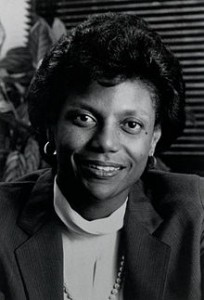 22 — Marguerite Ross Barnett was born on this date in 1942. In 1990, she became the first woman and the first African-American to hold the office of president of the University of Houston. From Charlottesville, Virginia she grew up in Buffalo, New York and earned a political science degree from Antioch College and master’s and doctorate degrees in political science from the University of Chicago. A recognized scholar in political science, she taught at Princeton, Howard, and Columbia. At UH, she succeeded in raising more than $150 million for the institution, establishing the Texas Center for Environmental Studies, and instituting the nationally renowned Bridge Program, which aided and motivated disadvantaged students to make a successful transition from high school to college.
22 — Marguerite Ross Barnett was born on this date in 1942. In 1990, she became the first woman and the first African-American to hold the office of president of the University of Houston. From Charlottesville, Virginia she grew up in Buffalo, New York and earned a political science degree from Antioch College and master’s and doctorate degrees in political science from the University of Chicago. A recognized scholar in political science, she taught at Princeton, Howard, and Columbia. At UH, she succeeded in raising more than $150 million for the institution, establishing the Texas Center for Environmental Studies, and instituting the nationally renowned Bridge Program, which aided and motivated disadvantaged students to make a successful transition from high school to college.
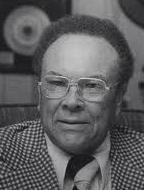 23 – On this day in 1973, Houstonian Don Robey sold Duke-Peacock Records, one of the first nationally-successful black-owned labels, to ABC-Dunhill, bringing an end to an important era in the Texas recording industry. Robey founded Peacock Records in 1949 to promote his featured artist, Clarence “Gatemouth” Brown. In 1952, Peacock merged with Duke Records which added to Robey’s roster R&B musicians such as Junior Parker, Bobby Blue Bland, Big Mama Thornton, and Johnny Ace. Robey’s Duke-Peacock Records helped shaped the sound of early rock ‘n’ roll and left a lasting imprint on American popular music.
23 – On this day in 1973, Houstonian Don Robey sold Duke-Peacock Records, one of the first nationally-successful black-owned labels, to ABC-Dunhill, bringing an end to an important era in the Texas recording industry. Robey founded Peacock Records in 1949 to promote his featured artist, Clarence “Gatemouth” Brown. In 1952, Peacock merged with Duke Records which added to Robey’s roster R&B musicians such as Junior Parker, Bobby Blue Bland, Big Mama Thornton, and Johnny Ace. Robey’s Duke-Peacock Records helped shaped the sound of early rock ‘n’ roll and left a lasting imprint on American popular music.
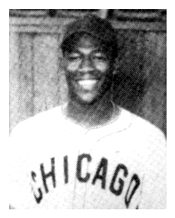 24 – Former Negro Leagues star and Tuskegee Airman John “Mule” Miles died on the day in 2013 at age 91 in his home town, San Antonio. During World War II, he served as a mechanic for the 99th Pursuit Squadron. After that, he played for the Chicago American Giants from 1946 to 1949 and in 1947 hit 11 home runs in 11 straight games, a feat that has never been equaled. Giants’ manager Candy Jim Taylor, gave Miles his nickname saying that he “hit like a mule kicks.” Miles played alongside such greats as Jackie Robinson, Hank Aaron, and Satchel Paige.
24 – Former Negro Leagues star and Tuskegee Airman John “Mule” Miles died on the day in 2013 at age 91 in his home town, San Antonio. During World War II, he served as a mechanic for the 99th Pursuit Squadron. After that, he played for the Chicago American Giants from 1946 to 1949 and in 1947 hit 11 home runs in 11 straight games, a feat that has never been equaled. Giants’ manager Candy Jim Taylor, gave Miles his nickname saying that he “hit like a mule kicks.” Miles played alongside such greats as Jackie Robinson, Hank Aaron, and Satchel Paige.
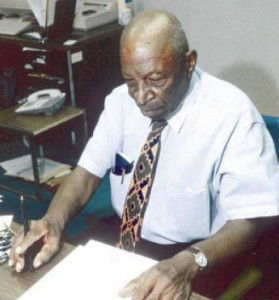 25 – Pioneering journalist George McElroy, “Mr. Mac,” was born on this day in 1922 in Houston. McElroy was the first black columnist for the Houston Post, and was also the first African-American to earn a master’s degree in journalism from the University of Missouri, which he attended on a scholarship from the Wall Street Journal. McElroy began his career at age 16 earning $2 a week writing a youth column for the Houston Informer, the city’s oldest black newspaper. Years later, he became the paper’s executive editor. McElroy, the recipient of numerous honors, taught journalism at Houston’s black high schools, as well as Texas Southern University (his alma mater) and the University of Houston.
25 – Pioneering journalist George McElroy, “Mr. Mac,” was born on this day in 1922 in Houston. McElroy was the first black columnist for the Houston Post, and was also the first African-American to earn a master’s degree in journalism from the University of Missouri, which he attended on a scholarship from the Wall Street Journal. McElroy began his career at age 16 earning $2 a week writing a youth column for the Houston Informer, the city’s oldest black newspaper. Years later, he became the paper’s executive editor. McElroy, the recipient of numerous honors, taught journalism at Houston’s black high schools, as well as Texas Southern University (his alma mater) and the University of Houston.
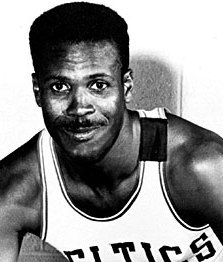 25 – Professional basketball great K.C. Jones was born on this day in 1932 in Taylor. At age nine, he moved with his mother to San Francisco where he starred in football and basketball at Commerce High School. At the University of San Francisco, Jones teamed with Bill Russell in leading the Dons to 56 consecutive wins and back-to-back NCAA championships in 1955 and 1956. Jones also played professionally with Russell on the powerful Boston Celtics teams as a defensive standout in late 1950s and 1960s. He was also a member of the 1956 U.S. Olympic Basketball Team that won a gold medal at Melbourne, Australia. Jones won eight championship rings as a player, one as an assistant coach with the Los Angeles Lakers, one as an assistant coach with the Celtics, and two as head coach of the Celtics. He was inducted to the Naismith Memorial Basketball Hall of Fame in 1989.
25 – Professional basketball great K.C. Jones was born on this day in 1932 in Taylor. At age nine, he moved with his mother to San Francisco where he starred in football and basketball at Commerce High School. At the University of San Francisco, Jones teamed with Bill Russell in leading the Dons to 56 consecutive wins and back-to-back NCAA championships in 1955 and 1956. Jones also played professionally with Russell on the powerful Boston Celtics teams as a defensive standout in late 1950s and 1960s. He was also a member of the 1956 U.S. Olympic Basketball Team that won a gold medal at Melbourne, Australia. Jones won eight championship rings as a player, one as an assistant coach with the Los Angeles Lakers, one as an assistant coach with the Celtics, and two as head coach of the Celtics. He was inducted to the Naismith Memorial Basketball Hall of Fame in 1989.
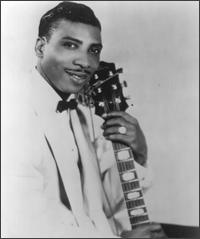 28 – On this day in 1910, guitarist Aaron Thibeaux Walker, “T-Bone,” was born in Linden. Walker became one of the most influential musicians on the blues scene and his 1947 hit, “Call It Stormy Monday,” is a blues standard. Walker grew up in Dallas and as a teenager led bluesman Blind Lemon Jefferson around the city collected tips for Jefferson’s street performances. Walker revolutionized the blues as one of the first (possibly THE first) to perform with an electric guitar. A great showman, Walker would play the guitar behind his head while doing the splits or play the guitar with his teeth. His performance style influenced artists like Chuck Berry and Jimi Hendrix. Walker was awarded a Grammy in 1970 for his album “Good Feelin'”. He was inducted to the Blues Hall of Fame in 1980 and the Rock & Roll Hall of Fame in 1987. He was ranked 47th on Rolling Stone magazine’s list of The 100 Greatest Guitarists of All Time.
28 – On this day in 1910, guitarist Aaron Thibeaux Walker, “T-Bone,” was born in Linden. Walker became one of the most influential musicians on the blues scene and his 1947 hit, “Call It Stormy Monday,” is a blues standard. Walker grew up in Dallas and as a teenager led bluesman Blind Lemon Jefferson around the city collected tips for Jefferson’s street performances. Walker revolutionized the blues as one of the first (possibly THE first) to perform with an electric guitar. A great showman, Walker would play the guitar behind his head while doing the splits or play the guitar with his teeth. His performance style influenced artists like Chuck Berry and Jimi Hendrix. Walker was awarded a Grammy in 1970 for his album “Good Feelin'”. He was inducted to the Blues Hall of Fame in 1980 and the Rock & Roll Hall of Fame in 1987. He was ranked 47th on Rolling Stone magazine’s list of The 100 Greatest Guitarists of All Time.
Blog: Ron Goodwin, author, PVAMU history professor
Ron Good 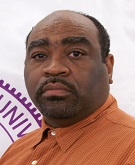 win’s bi-weekly blog appears exclusively for TIPHC/TBHPP. Goodwin is a San Antonio native and Air Force veteran. Generally, his column will address contemporary issues in the black community and how they relate to black history. He and the TIPHC/TBHPP staff welcome your comments. His latest blog is, “Democracy and Demagogues.” Read it
win’s bi-weekly blog appears exclusively for TIPHC/TBHPP. Goodwin is a San Antonio native and Air Force veteran. Generally, his column will address contemporary issues in the black community and how they relate to black history. He and the TIPHC/TBHPP staff welcome your comments. His latest blog is, “Democracy and Demagogues.” Read it
Submissions Wanted
Historians, scholars, students, lend us your…writings. Help us produce the most comprehensive documentation ever undertaken for the African American experience in Texas. We encourage you to contribute items about people, places, events, issues, politics/legislation, sports, entertainment, religion, etc., as general entries or essays. Our documentation is wide-ranging and diverse, and you may research and write about the subject of your interest or, to start, please consult our list of suggested biographical entries and see submission guidelines. However, all topics must be approved by TIPHC/TBHPP editors before beginning your research/writing.
We welcome your questions or comments via email or telephone – mdhurd@pvamu.edu.
